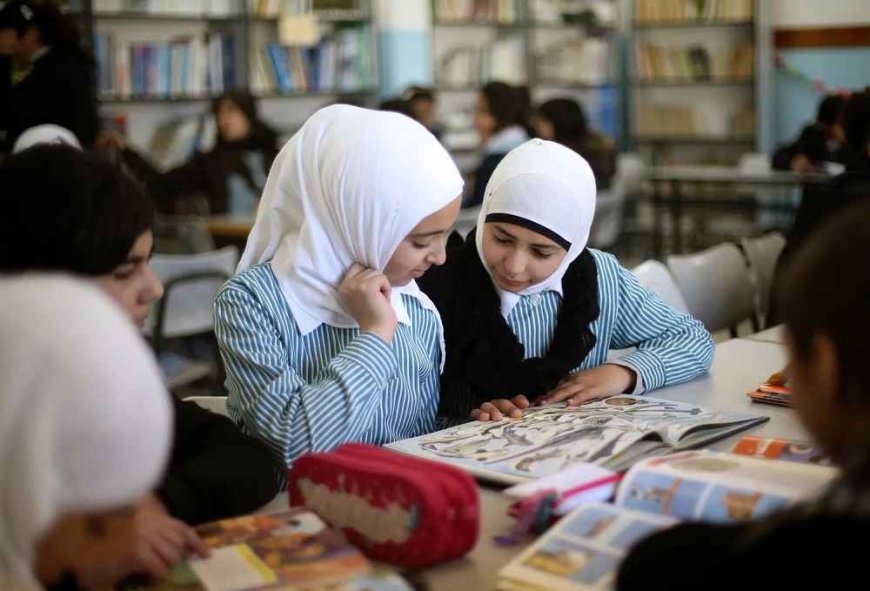Rethinking Education: Pathways to Transforming Our Educational System
The educational system forms the backbone of any society, serving as a crucible where knowledge, skills, and values are imparted

The educational system forms the backbone of any society, serving as a crucible where knowledge, skills, and values are imparted to the next generation. However, as the world rapidly evolves, it becomes crucial to question whether our current educational system is adequately preparing students for the challenges and opportunities of the 21st century. In this article, we will delve into several innovative approaches that can reshape and enhance the educational landscape, ultimately leading to a more effective and adaptable system.
Embracing Personalized Learning
One size does not fit all in education. Each student possesses unique strengths, weaknesses, and learning styles. Personalized learning aims to tailor education to individual students, fostering a deeper understanding and retention of knowledge. By leveraging technology, educators can create personalized curricula that adapt to students' progress and preferences. This approach not only empowers students to take ownership of their learning journey but also enhances engagement and outcomes.
Cultivating Critical Thinking and Problem-Solving Skills
In an era defined by rapid technological advancements and complex global challenges, the ability to think critically and solve problems is paramount. Shifting the focus from rote memorization to fostering these skills can equip students to navigate an ever-changing world. Encouraging open-ended inquiries, project-based learning, and real-world applications of concepts can nurture analytical thinking, creativity, and innovation.
Integrating Technology Wisely
Technology has the potential to revolutionize education, but its integration must be thoughtful and purposeful. Interactive simulations, virtual reality experiences, and online platforms can supplement traditional teaching methods, making learning more engaging and immersive. Moreover, technology can facilitate access to educational resources for students in remote or underserved areas, bridging the educational divide.
Promoting Emotional Intelligence and Well-being
Education should not solely revolve around academic achievements; it must also prioritize the holistic development of students. Introducing emotional intelligence training, mindfulness practices, and mental health education can equip students with the tools to manage stress, build resilience, and cultivate healthy relationships. A balanced focus on mental and emotional well-being can contribute to more well-rounded and fulfilled individuals.
Fostering Global Awareness and Cultural Competence
In an increasingly interconnected world, cultural competence and global awareness are indispensable skills. Incorporating diverse perspectives, cross-cultural studies, and language education can broaden students' horizons and instill a sense of empathy and understanding for different cultures. This not only prepares students to collaborate with people from diverse backgrounds but also nurtures a sense of global citizenship.
Encouraging Lifelong Learning
The rapid pace of change in the job market requires individuals to be lifelong learners. Educators can instill a passion for learning by emphasizing the process of exploration, curiosity, and continuous self-improvement. By nurturing an intrinsic motivation to learn, students are more likely to seek out new knowledge and adapt to evolving career landscapes.
Rethinking Assessment Methods
Traditional assessments often prioritize memorization and regurgitation of facts. Shifting towards competency-based assessments that evaluate practical skills, critical thinking, and problem-solving abilities provides a more accurate representation of students' capabilities. Moreover, incorporating portfolio assessments and project evaluations can provide a holistic view of a student's growth over time.
Strengthening Teacher Training and Support
Teachers play a pivotal role in shaping the quality of education. Providing comprehensive and ongoing professional development opportunities ensures that educators are equipped with the latest pedagogical methods, technology integration strategies, and classroom management techniques. Supporting teachers leads to more motivated, effective, and innovative instruction.
Collaborative Learning and Interdisciplinary Approaches
The challenges of the modern world often require multidisciplinary solutions. Encouraging collaborative projects that bring together students from various disciplines can mirror real-world problem-solving scenarios. Interdisciplinary approaches foster creativity, holistic thinking, and the ability to connect seemingly unrelated concepts.
Parent and Community Engagement
Education is a collective effort that extends beyond the classroom walls. Building strong partnerships between schools, parents, and communities can create a supportive ecosystem for students to thrive. Regular communication, involvement in school activities, and community projects enhance the educational experience and reinforce the importance of education in society.
The transformation of our educational system is not a simple task, but it is a necessary one. By embracing personalized learning, fostering critical thinking, integrating technology thoughtfully, and prioritizing emotional well-being, we can create a more adaptive and effective educational model. Moreover, instilling lifelong learning habits, embracing diverse perspectives, and reimagining assessment methods can equip students with the skills they need to succeed in a rapidly changing world. Through collaborative efforts involving educators, policymakers, parents, and communities, we can pave the way for a brighter and more innovative future for education.
